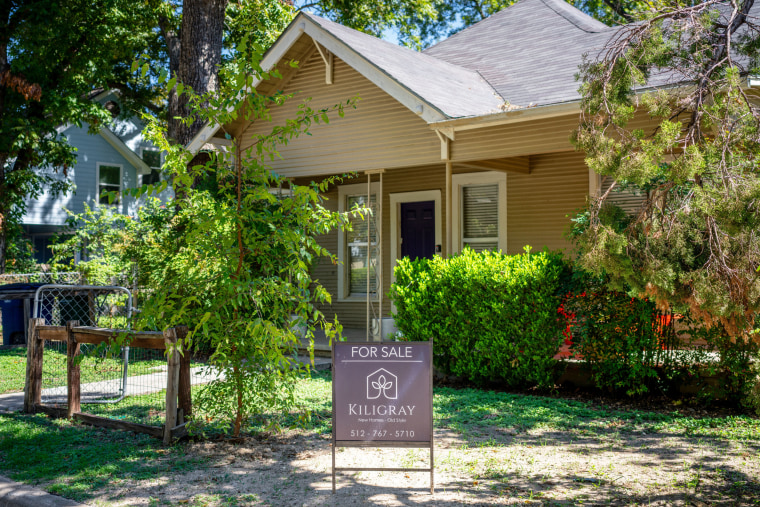It’s becoming harder to enter the U.S. housing market, but for those who have managed to get in, the benefits have often been huge.
Investing experts have long said that one of the best reasons to buy real estate is that it keeps more of its value than other investments, like stocks, when inflation gets high.
That’s been true during the inflation spike of the last two years. The Federal Reserve reports that the median value of a house, meaning the value of the house minus loans against it, such as mortgages, jumped 44% between 2019 and 2022. The Fed considered only primary residences in that analysis.
Largely for that reason, the median net worth of U.S. homeowners was $396,000 at the end of 2022, compared to $10,000 for renters.
The S&P 500 index rose about 32% from the end of 2019 to the end of 2022, not counting dividends paid by index companies. That’s also strong performance. But stocks have been more volatile, in part because their performance is closely linked to factors like corporate profits and investors’ views about the future of the economy.
“In a low-growth, high-inflationary environment, real estate is a very, very strong investment,” said Jamie Battmer. He is the chief investment officer at Creative Planning, a wealth management and financial advice firm that works with clients who have nearly a quarter-trillion dollars in combined wealth.
He adds that even in a backdrop like today’s, where growth is solid and inflation is elevated but not as high as it was a year ago, real estate tends to do well compared to stocks and bonds.
The steep increase in home values also means the housing market is becoming a bigger and bigger contributor to wealth inequality.
It’s such a powerful tool for creating wealth, even in bad times, that financial experts tell NBC News they’re advising clients to strongly consider buying a home even with prices at all-time highs and mortgage rates at two-decade highs.
“The perception people have is that it’s a bad time to buy given the level of prices as well as interest rates,” said Jason Obradovich, chief investment officer at New American Funding. But he said that’s not necessarily true. One reason is that if mortgage rates decrease, prices will probably rise in response.
“We haven’t had a ton of inflation, and yet real estate prices have climbed a lot,” Obradovich said.
The annual rate of inflation in 1980 was just over 14%. Mortgage interest rates that same year topped 16%.
“Interest rates have been coming down for about 40 straight years, and that obviously pushed up the value of real estate because people can afford a much larger payment.”
Obradovich says lower interest rates are inevitable because the Fed knows the U.S. economy requires it in order to achieve any kind of growth.
“When rates come down, you have the ability to refinance at a much lower rate,” he said.
When rates come down, prices are likely to go up again because it will be less costly to take out a mortgage. That means — for those who can afford it — it could be better to buy now than to wait.
“If you rent, it will probably always go up,” he said, referring to the cost of renting.
Obradovich and Battmer both made a similar point about the role a home can have in a person’s long-term finances. For many people, they both said, a house becomes a kind of forced retirement savings account. Every time they make a mortgage payment, they gain equity in the house, and the longer people own their homes, and the longer that prices rise, the more value they can get by taking out a home equity loan or borrowing against the value of their house.
“The great American dream of home ownership is still alive and well and a key element of what just drives wealth for your average household,” Battmer said.

